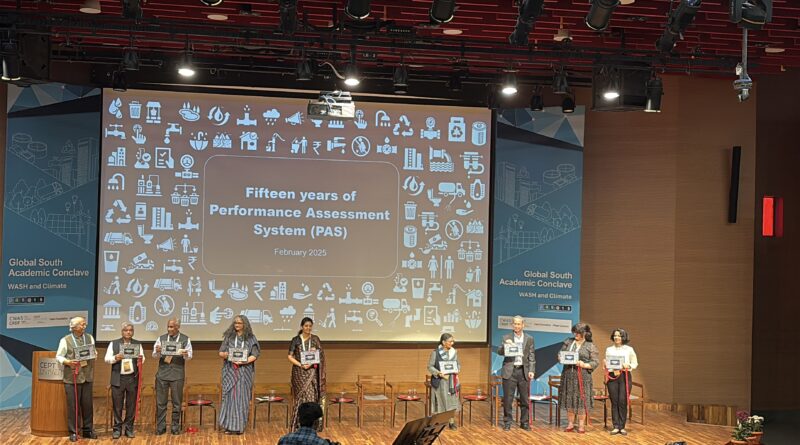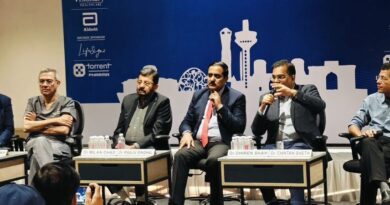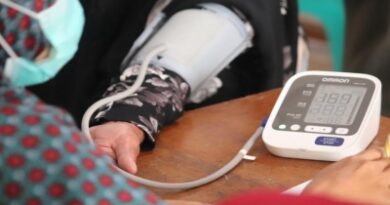CEPT University Hosts Three Day Global South Academic Conclave on WASH and Climate 2025
BILKULONLINE
Ahmedabad, Feb 22: The second edition of the Global South Academic Conclave
(GSAC) on WASH and Climate 2025 commenced today at CEPT University.
Organized by the Center for Water and Sanitation (CWAS) at CEPT Research
Development Foundation (CRDF) and the Faculty of Planning at CEPT University,
with support from the Bill & Melinda Gates Foundation and the Viega Foundation, the
three-day conclave brings together experts and stakeholders to address critical
challenges in water, sanitation, and hygiene (WASH) amidst changing climates.
The key highlight of the opening day was the launch of the PAS@15 report,
celebrating 15 years of the Performance Assessment System (PAS). This digital
platform for urban WASH performance assessment in India, developed by CWAS,
has become a vital tool for data-driven improvements in water, sanitation, and
climate resilience. Since its launch in 2009, PAS has expanded its reach from 414 to
over 800 cities in the states of Gujarat, Maharashtra, Telangana, Chhattisgarh,
Jharkhand, Assam and Sikkim, covering a population of 115 million, making it the
country’s largest WASH and climate-linked database for urban areas.
With climate change exacerbating water scarcity, sanitation challenges, and waste
pollution, data-driven solutions such as PAS are critical for climate-resilient urban
planning. By tracking water efficiency, sanitation infrastructure, and solid waste
management, PAS empowers cities to build a sustainable and climate-smart future.
PAS has shown that measuring performance can lead to measurable impacts. As
cities face climate uncertainties, data- driven governance will be the foundation for
sustainable, resilient, and equitable urban development.
Post the launch of the report, faculty members and Heads of CWAS, Prof Dinesh
Mehta and Prof Meera Mehta reflected on the 15-year journey of the initiative and
shared the report’s key findings. CWAS has been working on urban water and
sanitation related action research since 2009. CWAS began its work when CEPT
University received a grant from the Gates Foundation for Performance Assessment
System (PAS) Project. Over the past decade, the project has developed an online
system, methods, and processes for performance assessment and improvement for
urban water supply and sanitation in India.
Delivering the opening address, Professor Barjor Mehta, President, CEPT
University, highlighted the importance of academic gatherings focused on climate
change. He stressed the power of academia to bring diverse stakeholders together
to build consensus and drive action. “We, the academia, are the custodians of
knowledge, experience and the drive towards addressing the issues of climate
change. We must document the developments and foster an active community, so
that we can continue contributing towards policymaking in the years to come,” he
said.
Over the next two days, the conclave will feature discussions on a wide range of
topics, including WASH outcome monitoring, governance and financing for climate-
resilient WASH, and the intersection of WASH, climate, and urban planning.
Keynote addresses will be delivered by K Srinivas, Secretary, Ministry of Housing and Urban
Affairs, Government of India; Ms. Sheela Patel, Society for the Promotion of Area
Resource (SPARC); Sunita Narain, CSE; Rakesh Mohan, Centre for Social
and Economic Progress; Rick Johnston, World Health Organization (WHO),
Ashok Khosla, Development Alternatives and Kalanithy Vairavamoorthy,
International Water Association (IWA).



